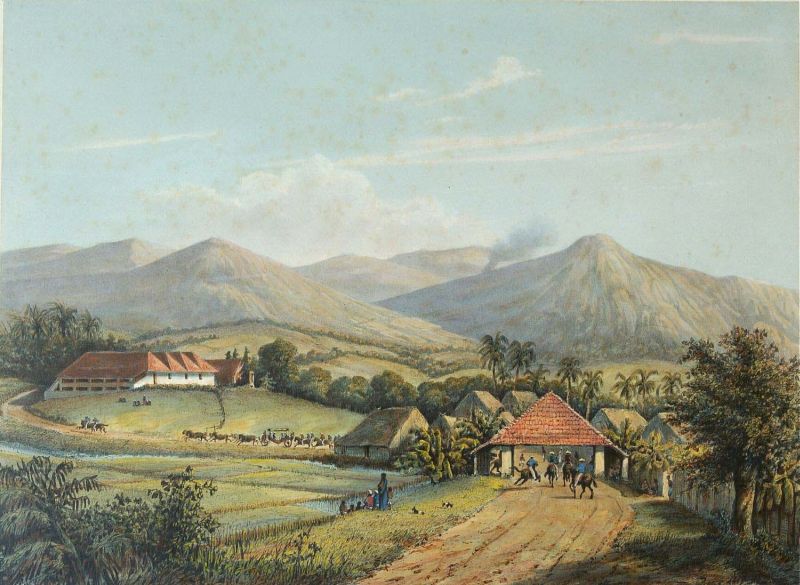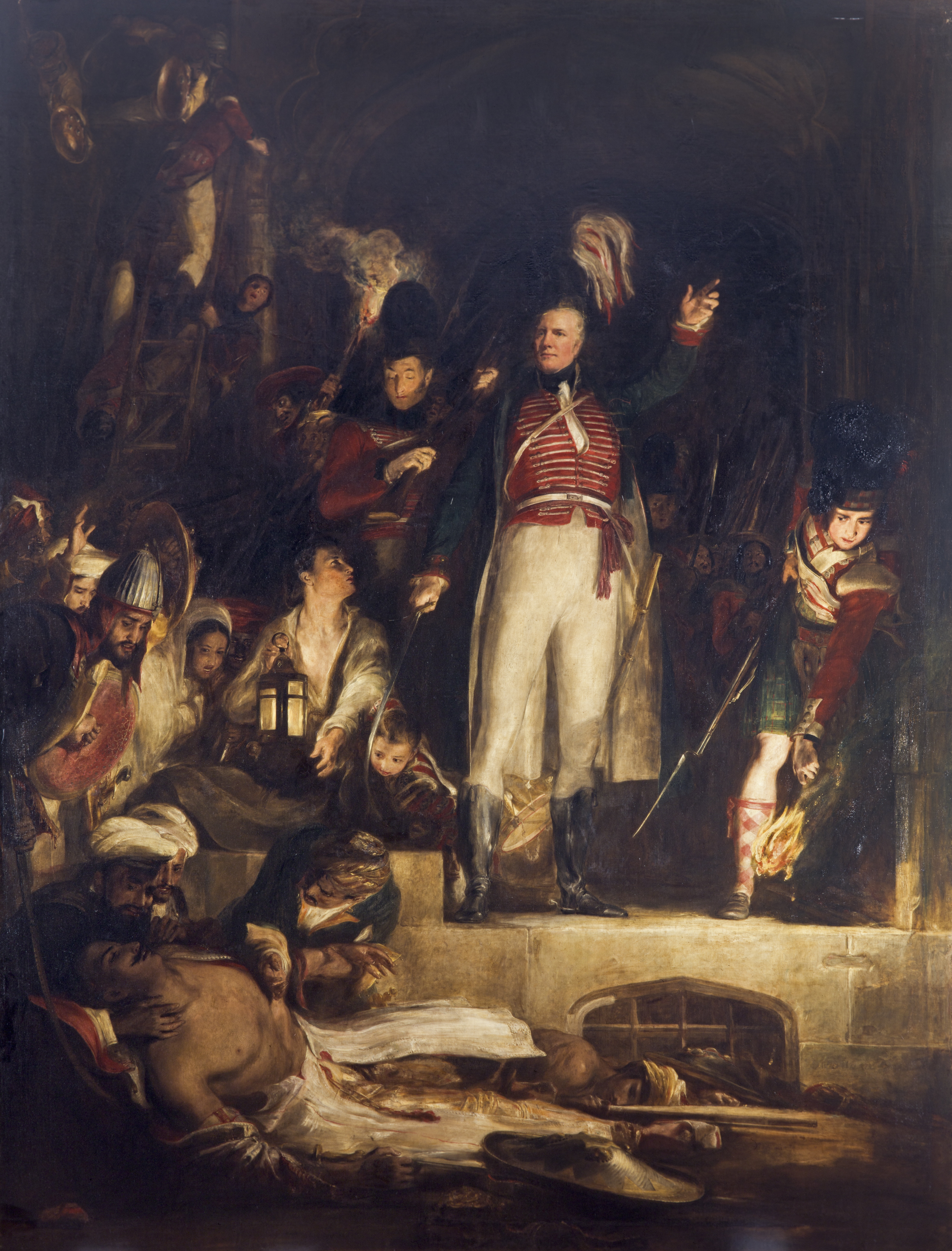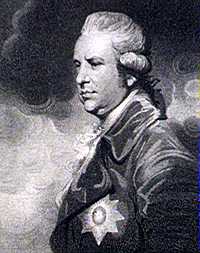|
Du Pré Alexander, 2nd Earl Of Caledon
Du Pré Alexander, 2nd Earl of Caledon (14 December 1777 – 8 April 1839), styled The Honourable Du Pré Alexander from 1790 to 1800 and Viscount Alexander from 1800 to 1802, was an Irish peer, landlord and colonial administrator, and was the second child and only son of James Alexander, 1st Earl of Caledon. Education and inheritance He was educated from 1790 to 1796 at Eton College in England and later at Christ Church, Oxford. He was elected member of parliament for Newtownards in 1800 and sat in the Irish House of Commons until the Act of Union in 1801. In the latter year, he was appointed High Sheriff of Armagh. He succeeded to the title of Earl of Caledon on the death of his father in 1802 and was elected a Representative Peer for Ireland in 1804. He had received a commission as an ensign in the Royal Tyrone Militia on 28 May 1793 when the regiment was raised, and had risen to captain by 11 June 1799 when he was promoted to major by seniority. He was appointed colonel o ... [...More Info...] [...Related Items...] OR: [Wikipedia] [Google] [Baidu] |
The Right Honourable
''The Right Honourable'' (abbreviation: The Rt Hon. or variations) is an honorific Style (form of address), style traditionally applied to certain persons and collective bodies in the United Kingdom, the former British Empire, and the Commonwealth of Nations. The term is predominantly used today as a style associated with the holding of certain senior public offices in the United Kingdom, Canada, New Zealand, and, to a lesser extent, Australia. ''Right'' in this context is an adverb meaning 'very' or 'fully'. Grammatically, ''The Right Honourable'' is an adjectival phrase which gives information about a person. As such, it is not considered correct to apply it in direct address, nor to use it on its own as a title in place of a name; but rather it is used in the Grammatical person, third person along with a name or noun to be modified. ''Right'' may be abbreviated to ''Rt'', and ''Honourable'' to ''Hon.'', or both. ''The'' is sometimes dropped in written abbreviated form, but is ... [...More Info...] [...Related Items...] OR: [Wikipedia] [Google] [Baidu] |
Colonel (United Kingdom)
Colonel (Col) is a rank of the British Army and Royal Marines, ranking below Brigadier (United Kingdom), brigadier, and above Lieutenant colonel (United Kingdom), lieutenant colonel. British colonels are not usually field commanders; typically they serve as Staff (military), staff officers between field commands at battalion and brigade level. The insignia is two diamond-shaped British Army officer rank insignia, pips (properly called Order of the Bath, "Bath Stars") below a crown. The crown has varied in the past with different monarchs; Elizabeth II of the United Kingdom, Elizabeth II's reign used St Edward's Crown. The rank is equivalent to Captain (Royal Navy), captain in the Royal Navy and group captain in the Royal Air Force. Etymology The rank of colonel was popularised by the tercios that were employed in the Spanish Army during the 16th and 17th centuries. General Gonzalo Fernández de Córdoba divided his troops into ''coronelías'' (meaning "column of soldiers" from t ... [...More Info...] [...Related Items...] OR: [Wikipedia] [Google] [Baidu] |
Rotten Borough
A rotten or pocket borough, also known as a nomination borough or proprietorial borough, was a parliamentary borough or Electoral district, constituency in Kingdom of England, England, Kingdom of Great Britain, Great Britain, or the United Kingdom of Great Britain and Ireland, United Kingdom before the Reform Act 1832, Reform Act of 1832, which had a very small electorate and could be used by a patron to gain unrepresentative influence within the unreformed House of Commons, House of Commons. The same terms were used for similar boroughs represented in the 18th-century Parliament of Ireland. The Reform Act abolished the majority of these rotten and pocket boroughs. Background A parliamentary borough was a town or former town that had been incorporated under a royal charter, giving it the right to send two elected burgess (title), burgesses as Members of Parliament (MPs) to the House of Commons. It was not unusual for the physical boundary of the settlement to change as the town ... [...More Info...] [...Related Items...] OR: [Wikipedia] [Google] [Baidu] |
Nicholas Vansittart, 1st Baron Bexley
Nicholas Vansittart, 1st Baron Bexley, (29 April 1766 – 8 February 1851) was an English politician, and one of the longest-serving Chancellors of the Exchequer in British history. Background and education The fifth son of Henry Vansittart (died 1770), the Governor of Bengal, Vansittart was born in Bloomsbury, Middlesex, and raised in Bray, Berkshire. Educated at Christ Church, Oxford, he took his degree in 1787, and was called to the bar at Lincoln's Inn. From the early 1770s he was living with his mother at 60 Crooms Hill, Greenwich. Political career Vansittart began his public career by writing pamphlets in defence of the administration of William Pitt, especially on its financial side, and in May 1796 became Member of Parliament for Hastings, retaining his seat until July 1802, when he was returned for Old Sarum. In February 1801 he was sent on a diplomatic errand to Copenhagen, and shortly after his return was appointed joint Secretary to the Treasury, a position wh ... [...More Info...] [...Related Items...] OR: [Wikipedia] [Google] [Baidu] |
Josias Porcher
Josias Du Pré Porcher (''ca.'' 1761 – 4 May 1820) was an English politician. After following his uncle into the service of the British East India Company, he became wealthy and returned to England, although he was frustrated in an attempt to obtain a directorship of the company. His wealth and his friendship with Du Pré Alexander, 2nd Earl of Caledon, Lord Caledon enabled him to sit in Parliament for various boroughs until 1818, although he was not a particularly conspicuous member. He died at his country home in Devonshire in 1820. Childhood and Indian career Born about 1761, Josias was the third son of Paul Porcher, a planter of Charleston, South Carolina, and his wife Esther Du Pré. Esther was the sister of Josias Du Pré, an East India merchant. Porcher moved to England in 1768 under the patronage of his uncle Josias, who was President of Madras from 1770 to 1773. Porcher not unnaturally took up a career in India as well, and became a writer of the British East India Comp ... [...More Info...] [...Related Items...] OR: [Wikipedia] [Google] [Baidu] |
Java
Java is one of the Greater Sunda Islands in Indonesia. It is bordered by the Indian Ocean to the south and the Java Sea (a part of Pacific Ocean) to the north. With a population of 156.9 million people (including Madura) in mid 2024, projected to rise to 158 million at mid 2025, Java is the world's List of islands by population, most populous island, home to approximately 55.7% of the Demographics of Indonesia, Indonesian population (only approximately 44.3% of Indonesian population live outside Java). Indonesia's capital city, Jakarta, is on Java's northwestern coast. Many of the best known events in Indonesian history took place on Java. It was the centre of powerful Hindu-Buddhist empires, the Islamic sultanates, and the core of the colonial Dutch East Indies. Java was also the center of the History of Indonesia, Indonesian struggle for independence during the 1930s and 1940s. Java dominates Indonesia politically, economically and culturally. Four of Indonesia's eig ... [...More Info...] [...Related Items...] OR: [Wikipedia] [Google] [Baidu] |
Gilbert Elliot-Murray-Kynynmound, 1st Earl Of Minto
Gilbert Elliot-Murray-Kynynmound, 1st Earl of Minto, (; 23 April 175121 June 1814), known as Sir Gilbert Elliott, 4th Baronet until 1797, and the Lord Minto from 1797 to 1813, was a British diplomat and politician who sat in the House of Commons between 1776 and 1795. He was viceroy of the short-lived Anglo-Corsican Kingdom from 1794 to 1796 and went on to become Governor-General of India between July 1807 and 1813. Background and education Minto was born in Edinburgh, the eldest son of Sir Gilbert Elliot, 3rd Baronet, and Agnes, daughter of Hugh Dalrymple-Murray-Kynynmound. He was the nephew of John Elliott, Governor of Newfoundland, Andrew Elliot the 41st Colonial Governor of New York, and of Jean Elliot the poet. Hugh Elliot was his younger brother and Sir Charles Elliot his nephew. About 1763 Elliot and his brother Hugh were sent to Paris, where their studies were supervised by the Scottish philosopher David Hume, and where they became intimate with Honoré M ... [...More Info...] [...Related Items...] OR: [Wikipedia] [Google] [Baidu] |
Mauritius
Mauritius, officially the Republic of Mauritius, is an island country in the Indian Ocean, about off the southeastern coast of East Africa, east of Madagascar. It includes the main island (also called Mauritius), as well as Rodrigues, Agaléga, and St. Brandon (Cargados Carajos shoals). The islands of Mauritius and Rodrigues, along with nearby Réunion (a French overseas department), are part of the Mascarene Islands. The main island of Mauritius, where the population is concentrated, hosts the capital and largest city, Port Louis. The country spans and has an exclusive economic zone covering approximately . The 1502 Portuguese Cantino planisphere has led some historians to speculate that Arab sailors were the first to discover the uninhabited island around 975, naming it ''Dina Arobi''. Called ''Ilha do Cirne'' or ''Ilha do Cerne'' on early Portuguese maps, the island was visited by Portuguese sailors in 1507. A Dutch fleet, under the command of Admiral Van War ... [...More Info...] [...Related Items...] OR: [Wikipedia] [Google] [Baidu] |
Sir David Baird, 1st Baronet
General Sir David Baird, 1st Baronet, of Newbyth, GCB (6 December 1757 – 18 August 1829) was a British Army officer who served in the Anglo-Mysore wars and French Revolutionary and Napoleonic Wars. Military career He was born at Newbyth House in Haddingtonshire, Scotland, the son of an Edinburgh merchant family, and entered the British Army in 1772. He was sent to India in 1779 with the 73rd (afterwards 71st) Highlanders, in which he was a captain. Immediately on his arrival, Baird was attached to the force commanded by Sir Hector Munro, which was sent forward to assist the detachment of Colonel Baillie, threatened by Hyder Ali. In the action which followed the whole force was destroyed, and Baird, severely wounded, fell into the hands of the Mysore chief. The prisoners remained captive for over four years. Baird's mother, on hearing that her son and other prisoners were in fetters, is said to have remarked, "God help the chiel chained to our Davie." The bullet was not ext ... [...More Info...] [...Related Items...] OR: [Wikipedia] [Google] [Baidu] |
Peace Of Amiens
The Treaty of Amiens (, ) temporarily ended hostilities between France, the Spanish Empire, and the United Kingdom at the end of the War of the Second Coalition. It marked the end of the French Revolutionary Wars; after a short peace it set the stage for the Napoleonic Wars. Britain gave up most of its recent conquests; France was to evacuate Naples and Egypt. Britain retained Ceylon (Sri Lanka) and Trinidad. It was signed in the Hôtel de Ville (City Hall) of Amiens on 25 March 1802 (4 Germinal X in the French Revolutionary calendar) by Joseph Bonaparte and Charles Cornwallis, 1st Marquess Cornwallis as a "Definitive Treaty of Peace". The consequent peace lasted only one year (18 May 1803) and was the only period of general peace in Europe between 1793 and 1814. Under the treaty, Britain recognised the French Republic. Together with the Treaty of Lunéville (1801), the Treaty of Amiens marked the end of the Second Coalition, which had waged war against Revolutionary Fra ... [...More Info...] [...Related Items...] OR: [Wikipedia] [Google] [Baidu] |
George Yonge
Sir George Yonge, 5th Baronet, KCB, PC, FRS (; 17 July 1731 – 25 September 1812), of Escot House in the parish of Talaton in Devon, England, was a British Secretary at War (1782–1783 and 1783–1794). He succeeded to his father's baronetcy in 1755, which became extinct when he died without children. He is remembered by, among other things, the name of Yonge Street, a principal road in what is now Toronto, Canada, so named in 1793 by the Lieutenant-Governor of Upper Canada, John Graves Simcoe. Life and career Yonge was born in 1731 at Great House in the parish of Colyton, Devon, the son and heir of Sir William Yonge, 4th Baronet by his second wife Ann Howard. He had a stepbrother, Walter Yonge, from his father's first wife Mary Heathcote. He was educated at Eton College and then at the University of Leipzig. He served as a Member of Parliament for his family's Rotten Borough of Honiton, Devon, from 1754 to 1761 and again from 1763 to 1796. He was quoted to ... [...More Info...] [...Related Items...] OR: [Wikipedia] [Google] [Baidu] |
George Macartney, 1st Earl Macartney
:''George Macartney should not be confused with Sir George Macartney, a later British statesman.'' George Macartney, 1st Earl Macartney, (14 May 1737 – 31 May 1806) was a British diplomat, politician and colonial administrator who served as the governor of Grenada, Madras and the Cape Colony. He is often remembered for his observation following Britain's victory in the Seven Years' War and subsequent territorial expansion at the Treaty of Paris that Britain now controlled " a vast Empire, on which the sun never sets". Early years He was born in 1737 as the only son of George Macartney, High Sheriff of Antrim and Elizabeth Winder. Macartney descended from a Scottish family with origins in Ireland, who were granted land in Scotland for serving under Edward Bruce, brother of Robert the Bruce. The Macartneys of Auchenleck, Kirkcudbrightshire settled in Lissanoure County Antrim, Ireland, where he was born. After graduating from Trinity College Dublin, in 1759, he became a st ... [...More Info...] [...Related Items...] OR: [Wikipedia] [Google] [Baidu] |






